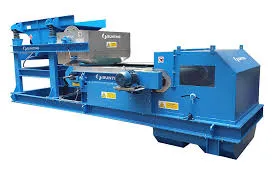

Novemba . 05, 2024 17:17 Back to list
The Importance of Aluminium Recycling Plants
Aluminium is one of the most widely used materials in the world, thanks to its lightweight, strength, and resistance to corrosion. From packaging and construction to aerospace and automotive industries, aluminium plays a crucial role in modern manufacturing. However, the extraction and processing of primary aluminium are energy-intensive and environmentally harmful. This reality has propelled the significance of aluminium recycling plants, which offer sustainable solutions for both environmental conservation and economic gain.
Aluminium recycling involves collecting, processing, and reusing aluminium scrap, transforming it back into usable material. One of the remarkable aspects of aluminium is that it can be recycled indefinitely without losing its properties. This characteristic makes recycling a preferable alternative to primary production. In fact, recycling aluminium saves up to 95% of the energy required to produce new aluminium from raw materials. As energy costs rise and environmental regulations become stricter, the importance of aluminium recycling plants continues to grow.
The process begins with the collection of aluminium waste, which can include used beverage cans, scrap from manufacturing processes, and old construction materials. Once collected, the aluminium is transported to recycling plants, where it undergoes cleaning and sorting to remove impurities and non-aluminium materials. This step is crucial because contaminants can affect the quality of the recycled aluminium. Advanced sorting technologies, including optical sorting and manual inspection, are employed to ensure a high purity level in the final product.
After sorting, the aluminium is shredded into small pieces and melted in a furnace. The melting process is relatively quick and energy-efficient compared to primary aluminium production. The molten aluminium is then poured into molds to create ingots, which can be further processed into a variety of products. This cycle not only conserves natural resources but also significantly reduces greenhouse gas emissions associated with traditional aluminium production.

Establishing aluminium recycling plants contributes to local economies by generating jobs and promoting community engagement in sustainability practices. These facilities often require a diverse workforce, ranging from collection personnel to skilled technicians, thereby creating a range of employment opportunities. Furthermore, recycling initiatives can foster a sense of environmental responsibility within communities, encouraging citizens to participate in recycling programs and sustainable practices.
In addition to the economic benefits, aluminium recycling plants play a critical role in reducing landfill waste. As the world grapples with waste management challenges, recycling facilities help divert millions of tons of aluminium from landfills, thereby minimizing environmental pollution and conserving landfill space. This proactive approach to waste management is crucial for achieving broader environmental goals, including reducing the carbon footprint and promoting a circular economy.
Despite the numerous advantages of aluminium recycling, challenges remain. The fluctuating prices of raw materials can impact the viability of recycling operations, and public awareness about recycling practices is essential for increasing collection rates. To address these challenges, governments and organizations are working to enhance recycling infrastructure and promote educational campaigns that emphasize the importance of recycling aluminium.
In conclusion, aluminium recycling plants are essential for sustainable development, offering significant environmental and economic benefits. By transforming waste into a valuable resource, these facilities play a vital role in conserving energy, reducing emissions, and promoting a circular economy. As the demand for aluminium continues to grow, the expansion of recycling capabilities is crucial for ensuring a sustainable future. The integration of innovative technologies, community awareness, and supportive policies will help maximize the potential of aluminium recycling, turning challenges into opportunities for a greener planet.
Latest news
Troubleshooting Common Eddy Separator Problems
NewsJul.04,2025
The Role of Metal Recycling Plants in Circular Economy
NewsJul.04,2025
The Impact of Recycling Line Pickers on Waste Management Costs
NewsJul.04,2025
Safety Features Every Metal Shredder Should Have
NewsJul.04,2025
How Industrial Shredders Improve Waste Management Systems
NewsJul.04,2025
How Cable Granulators Contribute to Sustainable Recycling
NewsJul.04,2025